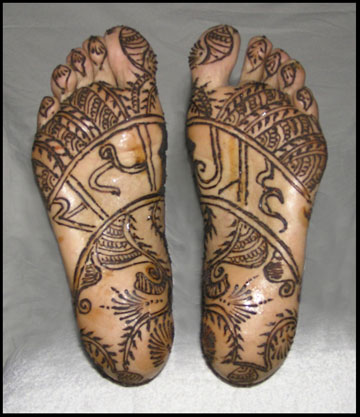Opposition and Unity
January 12 to February 12, 2009
- Reception: Thursday, January 22, 6-8 p.m., gallery lounge; features classical Odissi dancer Gulapudi Raman Kumari at 6:45 p.m. and artist gallery talk at 7 p.m.
- Artist Lecture: “Art and Peace,” Thursday, January 22 at 1p.m., room D244
 Solo exhibit addresses labor, domestic violence, nonviolence, education issues
Solo exhibit addresses labor, domestic violence, nonviolence, education issues
Parkland Art Gallery will hold an exhibition of contemporary sculpture, prints, photography, and installation by respected artist Indira Freitas Johnson in January. “Indira Freitas Johnson--Hand in Hand; Opposition and Unity,” will open Monday, January 12 and will run through Thursday, February 12.
An artist’s reception scheduled for Thursday, January 22 from 6 to 8 p.m. in the gallery lounge will feature classical Odissi dancer Gulapudi Raman Kumari at 6:45 p.m. and a talk by the Chicago-based Johnson at 7 p.m. Earlier that day, Johnson will discuss her work involving conflict resolution in Chicago public schools as part of the Shanti Organization for Peace, at 1 p.m. in room D244.
During her visit to Parkland from January 20-23, Johnson will also collaborate in creating a Rangoli community project. The project, based on a South Asian folk art tradition, is designed to unite diverse communities together in a spirit of hope and friendship. Its main goal is to discover through dialog, art, and ritual the commonality of our human experience, and the spiritual potential inherent in all of us.
Inspired by Indian folk art practices, Indira Johnson’s art addresses issues of labor, domestic violence, nonviolence, and health education. The role of the artist in ancient India was to facilitate a major change in the consciousness of the spectator; Johnson continues this role in her artistic works, the most recent of which have focused on ritual as part of the female tradition in India. Within this context, she has provided a public voice for disadvantaged groups.
Johnson’s work reflects a complex dialogue of experiences and cultural understanding. She calls herself “an artist and cultural worker from India, who has lived and worked in the Chicago area for over 20 years while maintaining close ties with India. The influences of my mother, a social activist, and my father, an artist and a follower of Gandhi, have been predominant in my life and art, where I continue to deal with the same issues that have preoccupied me… the growth towards a spiritual existence as an individual and as part of the human continuum.” Johnson also incorporates handmade pieces from women who participate in MarketPlace Handwork of India, an organization that promotes economic development and personal empowerment, based in Golibar, a low-income area in Mumbai, India. Finally, the image of the foot, which she calls “a symbol that appears in practically every culture since the dawn of civilization… which gives us stability and grounds us to the earth,” dominates much of the artwork in this exhibition.
Indira Johnson received her BA from the University of Bombay, India, and her MFA from the School of the Art Institute of Chicago. She is the recipient of several awards including the Illinois Arts Council Visual Arts Fellowship; the Governor’s Award for the Arts; Arts International Travelling Fellowship; and a Kohler Company Arts and Industry Grant from Sheboygan, Wisconsin. She has been in numerous solo exhibitions including the Museum of Contemporary Art in Chicago, the Indianapolis Arts Center, and the Rhode Island School of Design Museum. Believing strongly that art and activism are a powerful combination for social change, Johnson started the nonprofit Shanti Foundation in 1993 to address the rise of ethnic violence worldwide and foster the practice of nonviolence in everyday life. The foundation uses arts-based educational initiatives to offer students the means to develop conflict resolution skills and social justice strategies. Art forms used include drama, visual arts, filmmaking, playwriting, poetry, dance, puppetry and storytelling. To learn more about the work of Shanti Foundation go to www.shantifoundationforpeace.com.